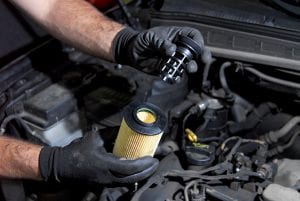Being able to drive gives a sense of personal freedom, especially if you are someone who is currently reliant on public transport to get around. But with this convenience comes some heavy costs not just in terms of car insurance, but also purchasing the vehicle itself.
As a newly qualified driver, or an existing driver looking to reduce the costs of driving, it’s worth considering all the options for getting a car so that you can stay on the road, and crucially that your finances can also stay in the black.
Here at Filter Services UK, we provide essential filter components to help keep your vehicle running at its best.
To also help you make an informed choice about the different ways you can buy a car, we’ve put together the following guide on buying, financing or leasing a car.

Buying a car
If you can afford the upfront costs, you can purchase a car either from a dealership or a private seller. Depending on the arrangement that suits you, this includes buying a new or used car.
Buying a new car from a reputable dealer is ideal although can often be the most expensive way of purchasing a vehicle. However, you will benefit from being able to customise the vehicle as you wish and the car itself will also have a very nominal amount of miles.
On the whole, buying outright is considered cheaper than buying a car on finance. Since you can also adjust your focus based on your budget, there are a lot of options to consider, spanning various car makes, models and overall vehicle conditions.
Pros: It can be extremely satisfying to be able to buy your car outright, especially when this means you won’t be tied to any ongoing payments relating to the ownership of the car. The vehicle is then yours to keep for as long as you wish.
Cons: You will need to be able to pay the full amount upfront. New cars notoriously depreciate in value as they are driven off the forecourt. Opting for a second-hand car can prove to be more cost-effective, though runs the risk of the car having defects.
Financing a car
When you agree to finance a car, it means you will pay a set amount per month for the vehicle. In the UK, the average car finance contracts run between one and seven years.
The choice to opt for financing anything you need in life is often when buying outright isn’t an option. Although the monthly payments can spread the cost of a new car, you will ultimately pay back far more in the long run due to the added interest. You will also need to keep up with your money repayments or face the car being repossessed, which would also badly impact your credit score.
That said, when there really isn’t the option to pay the full amount in one go, financing a car provides an option to still have a car that may not exist otherwise. In terms of car ownership, you won’t be considered the owner of a car on finance until you have made all of your repayments.
Sometimes, you are required to pay a fee at the end of the contract to be able to keep the car, which is why it’s essential to read the small print carefully before rushing into a decision.
Pros: Allows you to make repayments on a car if you are unable to pay for a new car upfront. Once you have made all of the payments on the car you will own it.
Cons: You will need to enter into a credit agreement with the lender and keep up with all of your repayments, otherwise, you could face financial penalties and difficulties obtaining credit in the future. Most people agree that financing a car costs them more in the long run. Financed cars are also often subject to mileage limits.
Leasing a car
Leasing a car involves renting a car for a set period of time (i.e. 2-3 years) before you are given the option to purchase the car at the end of the lease term.
For those who prefer to drive a new car, leasing can provide a more affordable option than purchasing a new car outright.
In recent years, car leasing has become more popular in the UK. However, there is a lot of debate as to whether leasing is cheaper than financing a car.
While you can lease a car for personal use, leasing is also a common option for businesses wanting to lease rather than buy a company vehicle.
Pros: Leased cars often have lower maintenance costs compared with buying a car outright. Newer cars under 3 years also benefit from not requiring an MOT which can also save money.
Cons: You don’t own a leased car and there are often mileage limits to factor in. While leasing companies claim leasing is cheaper than finance, this isn’t always the case.

Is it time your car filters were replaced too?
Beyond replacing your car by buying outright, financing or leasing, don’t forget that your car will also need maintenance to keep it up and running!
At Filter Services UK, we stock a fantastic selection of fuel filters, air filters, van filters and more.
Head over to our filters page to discover the top brands we stock. You can also view our products in person or receive tailored advice by visiting our locations in Chesterfield, Leeds or Leicester.
If you need any help with your filter purchase, please send us a message and our team will be with you shortly.
